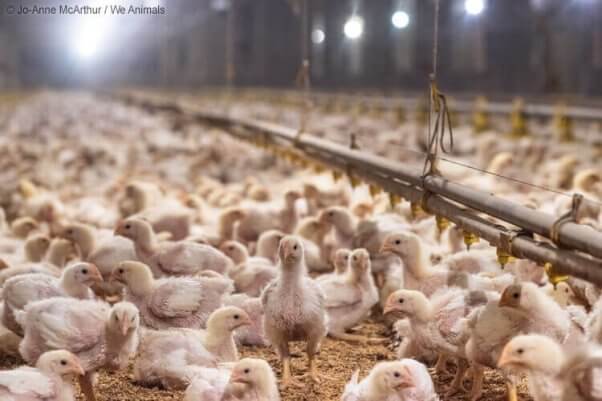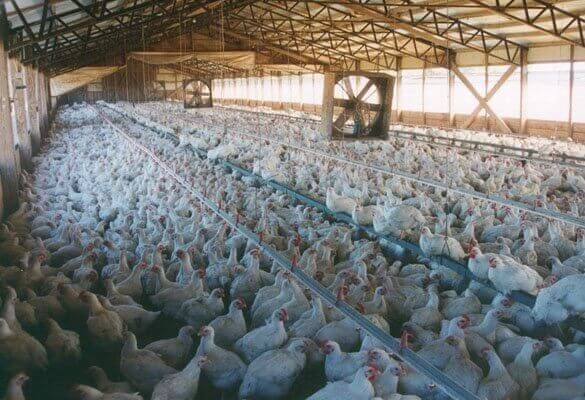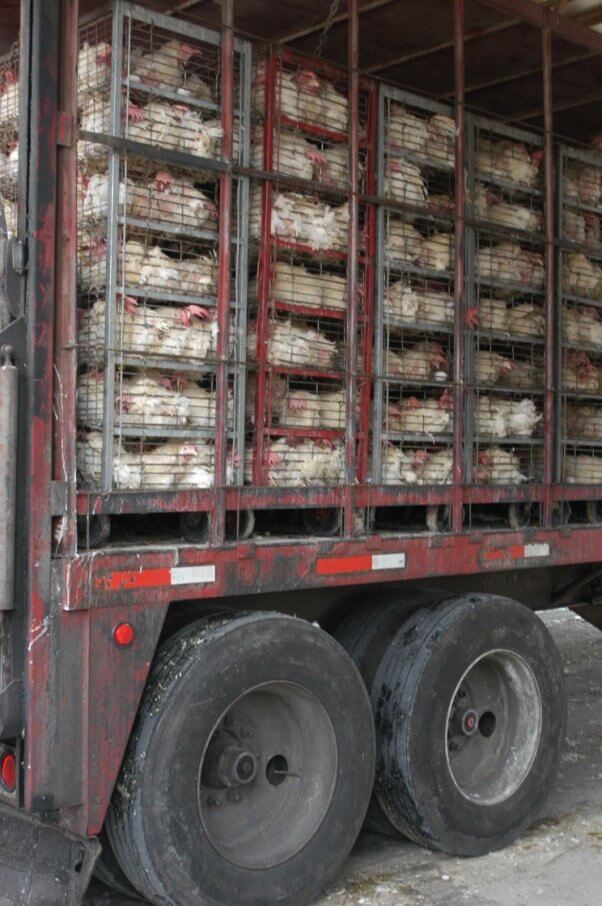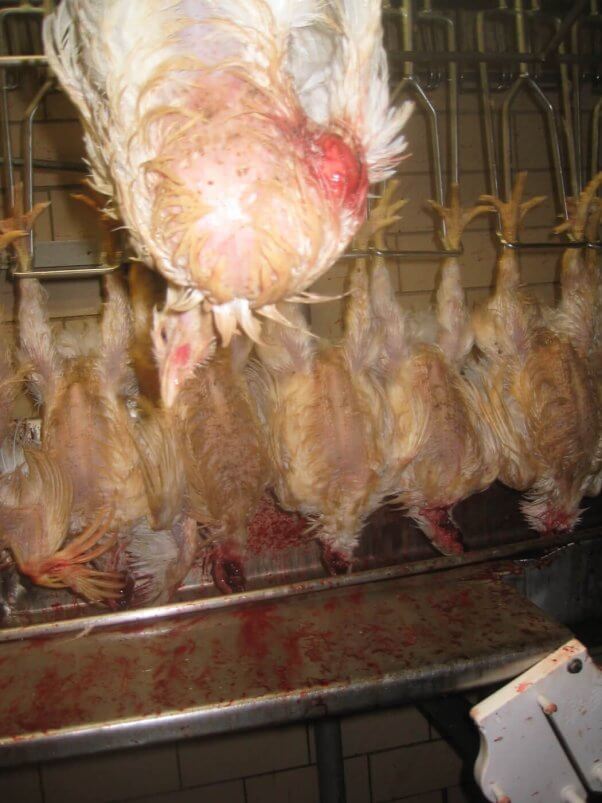Humane Scam! Why the ‘Better Chicken Commitment’ Is a Factory-Farm Promotion
The only “better chicken” is one who gets to keep her wings! The Global Animal Partnership, a humane label marketing scheme backed by the Humane Society of the United States and two other “animal welfare” organizations, announced that it is phasing in the requirement that all producers follow the abysmally low standards of the “Better Chicken Commitment,” a humane-washing sham that allows chickens to continue to suffer mightily in vile, filthy, factory-farm conditions so the meat industry can profit. Join PETA in urging the Humane Society of the United States, the ASPCA, and CIWF to stop supporting factory farms and humane washing and start telling consumers the truth: No factory farming is humane. Go vegan—it’s easy.

What Is the Better Chicken Commitment?
The “Better Chicken Commitment” is a humane-washing ploy that lures kind consumers into buying chicken flesh claiming it is “humanely” produced, even though the chickens suffer their entire lives and travel in all weather extremes to a frightening death.
“The chronic disease and deformities faced by virtually all chickens [is] because they have been genetically modified to grow fatter, faster than ever before.” – Andrew deCoriolis, Farm Forward Executive Director
Chickens must reach “slaughter weight” quickly to remain profitable to the chicken industry. The meat industry forced decades of genetic modifications onto chickens, turning the once energetic and curious birds into beings bred to do nothing but suffer.
“Better Chicken Commitment” birds are still:
- factory-farmed in intolerably crowded conditions that cause great distress.
- expected to reach slaughter weight only weeks after hatching.
- Suffering from serious ailments that afflict “broiler” chickens, like breast blisters, hock burns, footpad dermatitis, and muscular myopathies.
- forced to gain weight by the farming industry, which makes them morbidly obese, unhealthy birds who can barely walk more than a few steps at a time and often collapse.
- in pain their entire lives.
- violently killed when they are 6-7 weeks old.
Factory-Farmed Chickens Are Suffering at GAP Farms
Chickens feel pain, grief, love, joy, anxiety, and a range of other emotions, just like humans. When chickens are permitted to engage in their natural behavior, they are social and like to spend their days together, scratching for food, taking dust baths, roosting in trees, and lying in the sun. Chickens are arguably the most abused animals on the planet—and the ones who end up on your plate don’t get to enjoy anything that’s natural or important to them.

Over 8 billion chickens are killed for their flesh in the U.S. each year. Almost all of these chickens, called “broilers” by the speciesist chicken industry, spend their entire lives confined in filthy sheds with tens of thousands of other birds, even when their flesh is labeled “Animal Welfare Certified” or “organic,” in grocery stores like Whole Foods. The intense crowding and confinement by the meat, egg, and dairy industries often lead to outbreaks of disease, such as bird flu. When the birds are only 6 or 7 weeks old, workers cram them into overcrowded crates and truck them to slaughter.

Workers shackle chickens who survive the grueling journey to the slaughterhouse and hang them upside down before sending them through an electrified water bath intended, but often failing, to stun them. Many are still conscious when the workers slit their throats and scald them to death in defeathering tanks.

The Humane Society of the United States Is Humane-Washing: Don’t Trust the Label
As part of its campaign against humane-washing ploys like the “Better Chicken Commitment,” PETA is campaigning against the Global Animal Partnership and urging the three animal “protection” organizations that have representatives sitting on its board of directors to step down: The Humane Society of the United States, the ASPCA, and Compassion in World Farming. Sign our petition and remind these organizations through polite social media comments that the Global Animal Partnership’s certification is a misleading sham.

